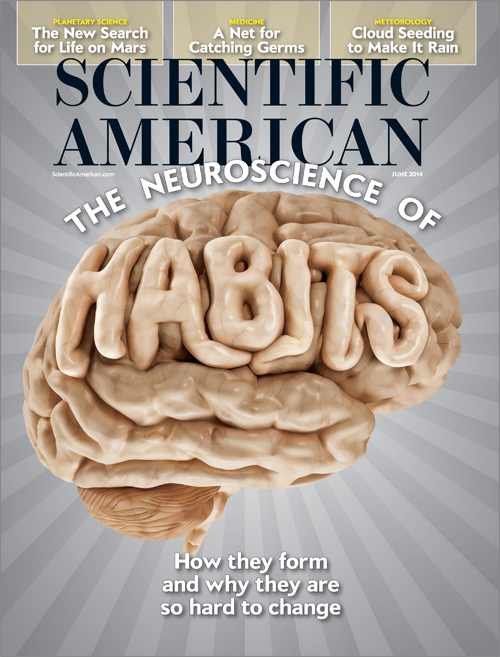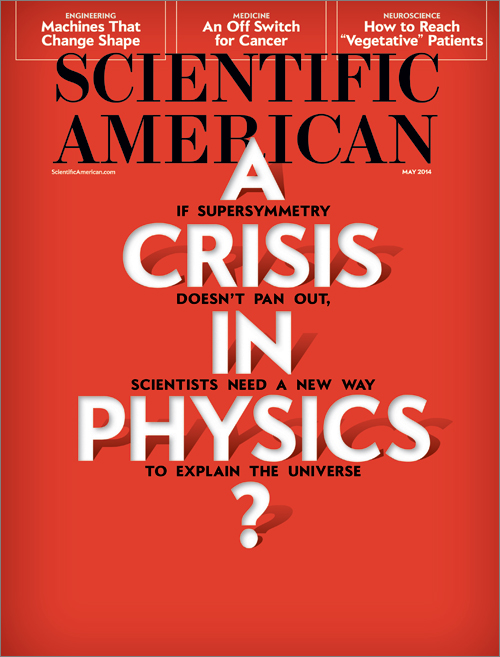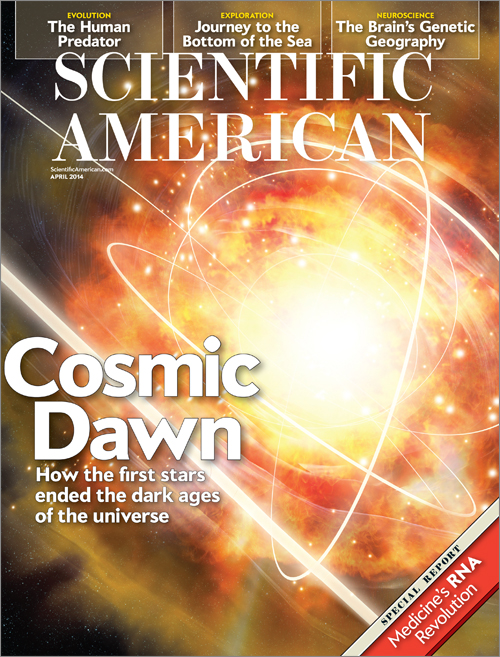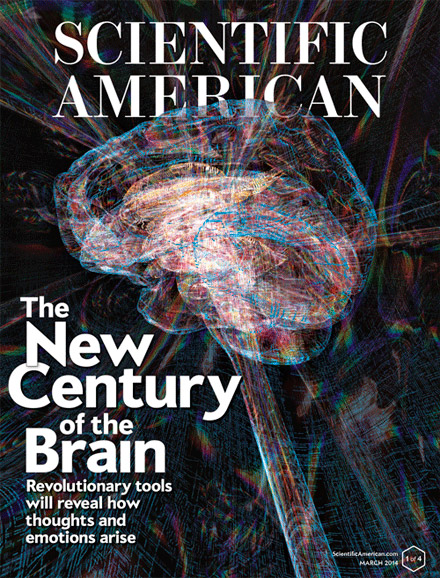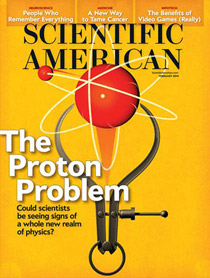June 1, 2014
Does deterrence prohibit the total abolishment
of nuclear weapons?
When I was in elementary school in the early 1960s, we were periodically put through “duck and cover” drills under the risibly ridiculous fantasy that our flimsy wooden desks would protect us from a thermonuclear detonation over Los Angeles. When I was an undergraduate at Pepperdine University in 1974, the father of the hydrogen bomb, Edward Teller, spoke at our campus about the effectiveness of mutual assured destruction (MAD) to deter war. He said that by stockpiling many weapons neither side has anything to gain by initiating a first strike because of the retaliatory capability of both to send the other back to the Paleolithic.
So far MAD has worked. But as Eric Schlosser reveals in his riveting 2013 book Command and Control, there have been dozens of close calls, from the Cuban missile crisis to the Titan II missile explosion in Damascus, Ark. And popular films such as Stanley Kubrick’s 1964 Dr. Strangelove have played out how it could all go terribly wrong, as when General Jack D. Ripper becomes unhinged at the thought of a “Communist conspiracy to sap and impurify all of our precious bodily fluids” and orders a nuclear first strike against the Soviet Union. (continue reading…)
May 1, 2014
Before all learning, an infant’s mind has a sense of
right and wrong
On the platform of a subway station, a woman and two men are talking a few feet away from the open track pit. Without warning, one of the men shoves the woman. She staggers backward toward the edge. The other man reaches out to catch her, but he is too late, and down she goes onto the tracks. In an instant, he reacts. He turns on his heels and coldcocks the culprit. It is a magnificent roundhouse to the face that snaps the wrongdoer’s head back. Satisfied with this act of revenge, he turns, hesitates and dashes over to pull the woman to safety. He reassures her, then takes off after the malefactor, who has beat a hasty retreat. The entire incident takes 20 seconds, and you can see it yourself on YouTube (at the 1:47 mark).
In that moment—too brief for rational calculation—a conflict of pure emotionality unfolds between rescue and revenge, helping and hurting. In a flash, two neural networks in the rescuer’s brain are engaged to act: help a fellow human in trouble or punish the perpetrator. What is a moral primate to do? In this case, because no train was coming, he could afford that problematic first choice. Rescue is sweet but so is revenge. (continue reading…)
April 1, 2014
When are we most (and least) likely to lie?
“Could switching to Geico really save you 15 percent or more on car insurance? Was Abe Lincoln honest?” So intones the Geico commercial spokesperson, followed by faux vintage film footage of Mary Lincoln asking her husband, “Does this dress make my backside look big?” Honest Abe squirms and shifts, then hesitates and, while holding his thumb and forefinger an inch apart, finally mutters, “Perhaps a bit,” causing his wife to spin on her heels and exit in a huff.
The humor works because we recognize the question as a disguised request for a compliment or as a test of our love and loyalty. According to neuroscientist Sam Harris in his 2013 book Lying (Four Elephants Press), however, even in such a scenario we should always tell the truth: “By lying, we deny our friends access to reality—and their resulting ignorance often harms them in ways we did not anticipate. Our friends may act on our falsehoods, or fail to solve problems that could have been solved only on the basis of good information.” Maybe Mary’s dressmaker is incompetent, or maybe Mary actually could stand to lose some weight, which would make her healthier and happier. Moreover, Harris says, little white lies often lead to big black lies: “Very soon, you may find yourself behaving as most people do quite effortlessly: shading the truth, or even lying outright, without thinking about it. The price is too high.” A practical solution is to think of a way to tell the truth with tact. As Harris notes, research shows that “all forms of lying—including white lies meant to spare the feelings of others—are associated with poorer-quality relationships.” (continue reading…)
March 1, 2014
What does the magnificence of the universe
have to do with God?
After 64-year-old Diana Nyad completed her 110-mile swim from Cuba to Florida in September 2013, she was interviewed by Oprah Winfrey on her Super Soul Sunday show in what was to be a motivational reflection on the triumph of will over age. When Nyad announced, “I’m an atheist,” Oprah responded quizzically: “But you’re in the awe.” Puzzled, Nyad responded: “I don’t understand why anybody would find a contradiction in that. I can stand at the beach’s edge with the most devout Christian, Jew, Buddhist—go on down the line—and weep with the beauty of this universe and be moved by all of humanity. All the billions of people who have lived before us, who have loved and hurt and suffered. So to me, my definition of God is humanity and is the love of humanity.” What Oprah said next inflamed atheists: “Well, I don’t call you an atheist then. I think if you believe in the awe and the wonder and the mystery, then that is what God is.”
This is the soft bigotry of those who cannot conceive of how someone can be in awe without believing in supernatural sources of wonder. Why would anyone think that? (continue reading…)
February 1, 2014
Can a scientific utopia succeed?
“There is no scientific law that prevents 100 people who find each other on the Internet from coming together for a month, or 1,000 such people from coming together for a year. And as that increases to 10,000 and 100,000 and beyond, for longer and longer durations, we may begin to see cloud towns, then cloud cities, and ultimately cloud countries materialize out of thin air.” So says Stanford University lecturer Balaji Srinivasan in an article published online by Wired in November 2013. In a talk at the annual conference held by the Silicon Valley start-up-funding organization Y Combinator, he revealed his inspiration to be the classic 1970 book Exit, Voice, and Loyalty by the late economist Albert Hirschman: when firms, nations and other organizations begin to stagnate and decline, members or citizens can employ one of two strategies for change— voice their opinions for reform; exit and start anew. (continue reading…)
